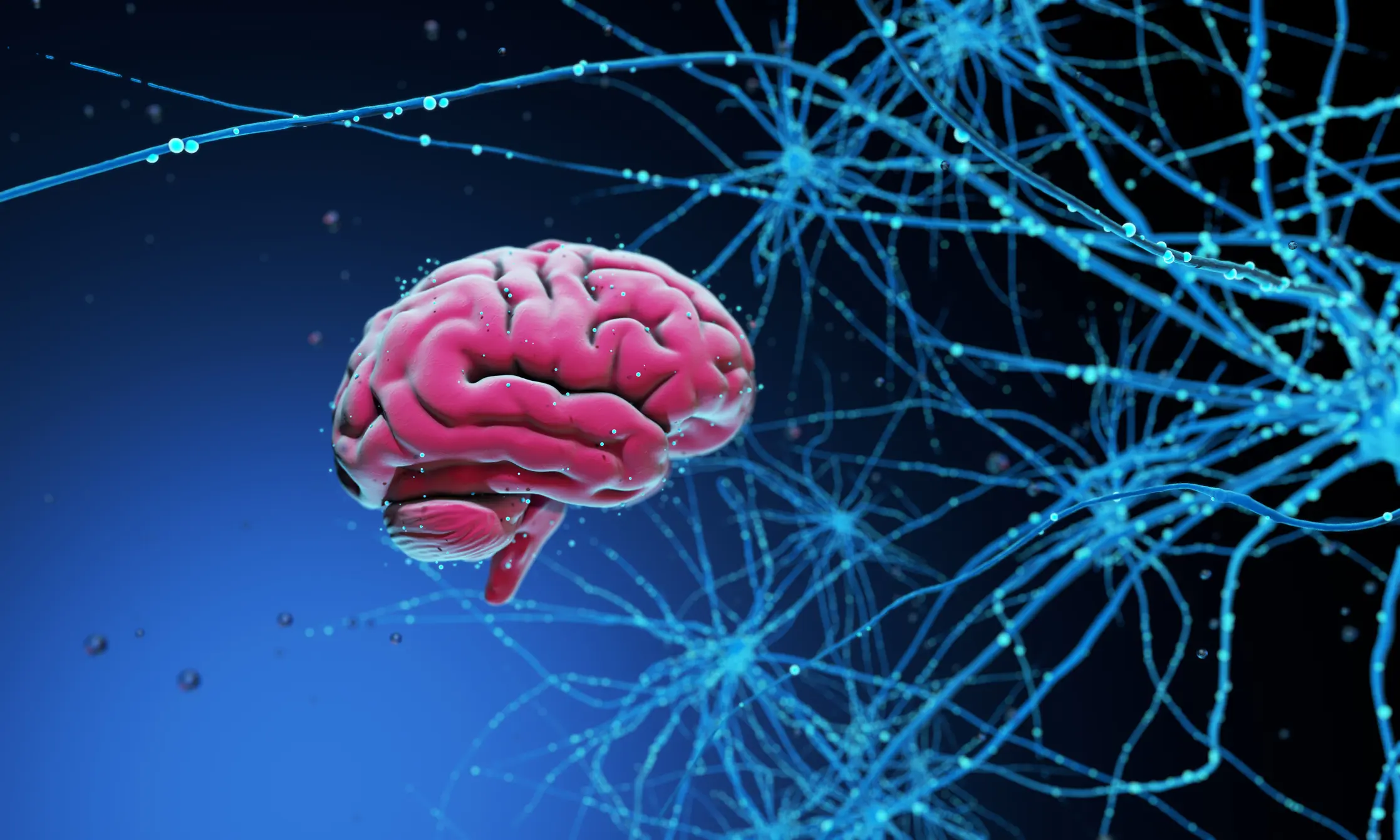Real-world intelligence rarely looks like movie-genius moments. More often, it shows up as curiosity you can’t turn off, the ability to change your mind, and the unglamorous habit of learning from mistakes.
Below are 11 research-supported signals of smarts – with explanations, cautions, and practical tips. Every claim links to peer-reviewed studies or authoritative reviews.
11 Signs You’re More Intelligent Than You Think (According to Science)
1) You’re insatiably curious – and it boosts your memory
When you’re genuinely curious, your brain’s learning systems kick into a higher gear. In an fMRI study, participants remembered information better when they were in a high-curiosity state – even incidental facts learned during that period improved. The effect was tied to hippocampal memory networks and dopamine pathways – the brain’s memory/motivation duo (Gruber et al., 2014, Neuron).
A follow-up review explains how curiosity primes the brain for learning across topics, not just the one you’re curious about (Gruber & Ranganath, 2019, Trends in Cognitive Sciences).
What it looks like: You ask follow-up questions, go down rabbit holes (productively), and genuinely enjoy learning for its own sake.
Caution: Curiosity without follow-through is of little help. Pair it with quick note-taking or spaced review.
Try this: Keep a “curiosity queue.” When something grabs you, jot it down and schedule two 20-minute curiosity sprints this week.
2) You can say “I might be wrong” (intellectual humility)
Owning the limits of your knowledge is a strength, not a deficit. Research links intellectual humility to better learning, open-mindedness, and reasoning quality (Krumrei-Mancuso et al., 2017).
Newer work explores how humility supports collective problem-solving in groups and better discourse under uncertainty (Krumrei-Mancuso et al., 2025 review).
What it looks like: You revise opinions when presented with solid evidence and you seek feedback early.
Caution: Humility ≠ indecision. It’s about updating beliefs when the signal is strong.
3) You can hold information in mind while ignoring distractions (working memory & attention control)
ID 119762254 | 3d Brain ©Anton Chervov | Dreamstime.com
A bedrock of reasoning is working memory capacity – the ability to keep relevant info “online” while filtering noise. Decades of evidence show strong links between working memory, attention control, and general intelligence (Conway, Kane, & Engle, 2003; overview: Barrett et al., 2004).
What it looks like: You keep a goal in mind amid pings and pop-ups. You summarize a meeting while tracking next steps.
Caution: Multitasking feels efficient but often taxes working memory and hurts accuracy.
Try this: Use “single-task blocks” of 25–45 minutes with notifications off; park stray thoughts in a scratchpad to protect focus.
4) You learn quickly from mistakes (strong error monitoring)
Brains that notice errors fast tend to adapt faster. A neural signal called the error-related negativity (ERN) spikes milliseconds after you slip; larger ERNs have been linked to better learning from negative feedback (Frank et al., 2005). Methodological reviews summarize how ERN scales with task demands and individual differences (LoTemplio et al., 2023).
What it looks like: You catch typos the moment you hit send. You self-correct mid-task without spiraling.
Caution: ERN research is lab-based and group-level. Anxiety can also increase ERN – more signal isn’t always more useful in real life.
Try this: Build micro-reviews into workflows (e.g., a “two-minute audit” after finishing a draft).
5) You can wait for the bigger payoff (delay discounting)
Choosing a larger, later reward over a smaller, sooner one – lower delay discounting – is associated with higher cognitive ability. A meta-analysis found a reliable negative correlation between steep discounting and intelligence (Shamosh & Gray, 2008). An open-access review connects discounting to executive control and personality (Yeh et al., 2021).
What it looks like: You stick to study plans, savings goals, or training cycles – even when short-term temptations pop up.
Caution: Self-control is trainable and context-dependent (sleep, stress, glucose, environment). It’s not a fixed trait.
Try this: Use pre-commitments (auto-savings, site blockers, schedule-first calendars) to make the “later, larger” choice easier.
6) You “get” complex or dark humor
Understanding dark/black humor requires rapid frame-shifting and blending of meanings – cognitive moves tied to intelligence.
People who best comprehended and appreciated black humor scored higher on verbal and nonverbal intelligence, with lower aggression (Willinger et al., 2017, Cognitive Processing). Humor production also correlates with intelligence in other work (Greengross & Miller, 2011; brief PDF here).
What it looks like: You enjoy jokes that require a beat of processing – or you’re good at crafting punchlines.
Caution: This is about comprehension, not edgy taste. Plenty of highly intelligent people dislike dark humor.
7) You played an instrument (or still do)
Randomized and quasi-experimental studies suggest music training can cause small but meaningful gains in certain cognitive abilities and academic performance. Classic findings include increases in full-scale IQ after music lessons (Schellenberg, 2004) and boosted verbal intelligence after short-term training (Moreno et al., 2011).
What it looks like: Years of lessons – or even recent adult practice – map to better auditory working memory and discipline.
Caution: Effects are small on average. Music helps, but it’s not a magical IQ hack.
Try this: If you haven’t played in years, try 10-minute “re-entry” sessions. Consistency beats duration.
8) You read early – and you keep reading widely
Longitudinal twin research indicates that early reading ability predicts later intelligence, even when controlling for shared genes and home environment (Ritchie, Bates & Plomin, 2014/2015).
A summary from SRCD explains the long-term pattern in plain English (SRCD news release, 2014). Related work links early reading and math skills to higher socioeconomic status decades later (Ritchie & Bates, 2013).
What it looks like: You devoured books as a kid – or you picked up reading later and noticed other learning got easier.
Caution: Some reanalyses debate the strength of causal claims. Still, the weight of evidence favors “reading helps” more than “reading just reflects IQ.”
Try this: Mix challenge + fun. Pair one “stretch” book with one easy page-turner to keep momentum high.
9) You’re comfortable changing gears (cognitive flexibility)
Cognitive flexibility – shifting between rules or perspectives – shows modest but reliable links with general cognitive ability. People with better task-switching performance tend to score higher on g-loaded measures (Schmitz et al., 2023). Reviews highlight flexibility as a core executive skill for adapting to new demands (Hohl et al., 2024).
What it looks like: You can reframe a problem, switch strategies mid-project, or translate ideas across domains.
Caution: Constant involuntary task switching (interruptions) hurts performance. Flexibility is about intentional shifting.
Try this: When stuck, ask: “What if the opposite were true?” or “How would I solve this with half the resources?”
10) You need less socializing to feel satisfied (for some, not all)
A widely discussed study reported that, compared with others, more intelligent individuals reported lower life satisfaction with more frequent socialization with friends, suggesting their well-being may rely less on frequent social interaction (Li & Kanazawa, 2016, British Journal of Psychology).
What it looks like: You genuinely enjoy solitude or small circles – and use that time for thinking, reading, or projects.
Big caution: This finding is correlational, based on specific populations, and comes from an evolutionary-psychology framework that has critics. It does not mean “smart people don’t need friends,” nor that social connections aren’t vital for health. Treat it as a possible tendency – not a rule.
11) You know what you know (and what you don’t): metacognitive calibration
Metacognition – monitoring and evaluating your own thinking – is linked to better learning and decision-making, and it develops with age and practice. Research shows metacognitive ability improves through adolescence and shapes how we form global self-beliefs about performance (Weil et al., 2013; Rouault et al., 2020, PNAS). A recent review summarizes how confidence calibration affects behavior and learning across domains (Fleming, 2024, Annual Review of Psychology).
What it looks like: You judge accurately when you’ve mastered something (and when you haven’t), so you allocate study time wisely.
Caution: Overconfidence and underconfidence both distort learning. Calibration is the goal.
Practical stack to grow your smarts (science-aligned)
- Protect focus (working memory loves quiet): schedule notification-free deep-work blocks; use scratchpads to park thoughts (working memory primer).
- Feed curiosity on purpose: keep an “intrigue list” and set guilt-free 20-minute dives (curiosity & memory).
- Review errors quickly: build fast post-mortems into your week (ERN overview).
- Train delay of gratification: pre-commit (site blockers, auto-savings) to make good choices default (meta-analysis).
- Make reading a habit: broad and deep; mix challenge with fun (twin study summary).
- Practice a musical skill (or analogous discipline): consistent practice beats talent myths.
A note before you judge yourself (important disclaimers)
- No single sign “proves” you’re intelligent. Most findings are correlational – averages over groups – not a personality test for individuals.
- Intelligence is multi-dimensional. These signs reflect tendencies related to reasoning, learning, and adaptation – not your worth as a person.
- Context matters. Age, culture, health, sleep, and stress all influence these patterns. Treat this list as a mirror, not a verdict.
- If anxiety or mood issues impact daily life, seek support. High worry can coexist with strengths but may still need care; research findings aren’t prescriptions.
FAQ: Science-Backed Questions About Intelligence, IQ, and Cognitive Skills
Does having these signs mean I’m highly intelligent?
Not by themselves. These traits correlate with cognitive strengths, but they aren’t a diagnostic tool. They simply suggest strong learning, focus, or reasoning abilities.
Can intelligence improve over time?
Yes. Skills like focus, memory, reasoning, and metacognition are trainable through reading, deliberate practice, deep work, and healthy lifestyle habits.
Is curiosity really linked to better memory?
Research shows it is. High-curiosity states activate memory networks, helping you learn and remember information more effectively.
Does anxiety correlate with intelligence?
Only in specific cases. Some studies find links between verbal intelligence and certain types of worry, but chronic anxiety usually reduces focus and performance.
Does enjoying dark humor mean higher intelligence?
Understanding complex or dark humor often requires quick cognitive shifting. It correlates with intelligence in studies, but it’s not a universal indicator.
If I didn’t read early as a child, does it matter now?
No. Early reading predicts later learning, but adults can build strong cognitive skills through consistent reading at any age.
Does playing an instrument make you smarter?
Music training offers small benefits to memory and attention. The advantage comes from consistent practice, not talent or childhood lessons.
Do intelligent people really need less social interaction?
Sometimes. One study suggests higher-IQ individuals may be more content with less frequent socializing, but it’s a tendency—not a rule.
Does multitasking hurt intelligence?
It doesn’t lower intelligence, but it strains working memory. Focused, single-task work helps you use your cognitive abilities more effectively.
Can lifestyle habits boost intelligence?
Yes. Sleep, exercise, focused work sessions, reading, and learning new skills all support sharper thinking and better cognitive performance.
“I have anxiety – does that mean I’m more intelligent?”
Not necessarily. Some studies report positive associations between certain kinds of worry/rumination and aspects of verbal intelligence in non-clinical samples, but the literature is mixed and context-dependent (Penney et al., 2015). These are group averages, not prescriptions – and high anxiety can impair performance. If anxiety affects daily life, professional support helps.
“I’m bilingual; does that prove better executive function?”
The “bilingual advantage” remains debated; meta-analyses suggest any benefits are small and vary by age and task (Lowe et al., 2021; Ware et al., 2020; Dick et al., 2019). Being multilingual is wonderful – just don’t overinterpret it.
Putting it together: intelligence is a pattern, not a party trick
None of these signs alone crowns you a genius. But if several resonate – especially the trio of curiosity, attention control, and learning from errors – there’s a strong chance you’re running a sharper-than-average cognitive toolkit (whether or not you’ve ever taken an IQ test).
Keep asking better questions, protect your focus, learn loudly from mistakes, and stay curious. That’s a very smart way to live.
I recently presented you on this site some studies with different recommendations of EASY things to do to live happily and long:
- Scientists Reveal the Unexpected Longevity Habit That Costs Nothing
- Scientists Say This Overlooked Habit Could Add Years to Your Life
- Scientists Say People With This Mindset Are Far More Likely to Reach Age 90+
- Add Decades, Not Just Years: 8 Habits That Could Add 20–25 Years to Your Life (Backed by a Massive Study)
- Want a Longer, Happier Life? Scientists Say This 1-Hour Habit Could Be the Key
- Want to Live Longer? Studies Say These Mental Habits May Help (No Sweat Required)
- Eat Earlier, Live Longer? What a New Study Says About Breakfast Timing, Aging, and Longevity
- Simple daily habits for a healthier mind
- How to De-Clutter Your Mind, Backed by Science
- The Personality Traits That Can Help You Live Longer (and Be Happier)
- How to Build Real Self-Esteem That Lasts (Backed by Science, Not Buzzwords)
- 17 Signs You Are Happier Than You Think
- 11 Signs You Are More Intelligent Than You Think
- Things People With High Self-Esteem Rarely Do
- How to Reduce Sugar Intake Naturally
- Science-Backed Benefits of Eating Walnuts (and How Much You Should Actually Eat)
- Things I Didn’t Expect to Happen When I Turned 40 (But Totally Did)
- 15 Signs You’re More Emotionally Intelligent Than You Think – Backed by Science
- How to Rewire Your Brain for Calm, Focus, and Joy in Midlife
- Build a Night Routine That Boosts Longevity – Science-Based
- How Much Sleep Should You Get Per Night to Be Healthy?
- This Many Cups of Coffee Could Help You Live Longer (Science Says So)
Photo sources (apart from Dreamstime): 1 and 3 – created with ChatGPT, 2







